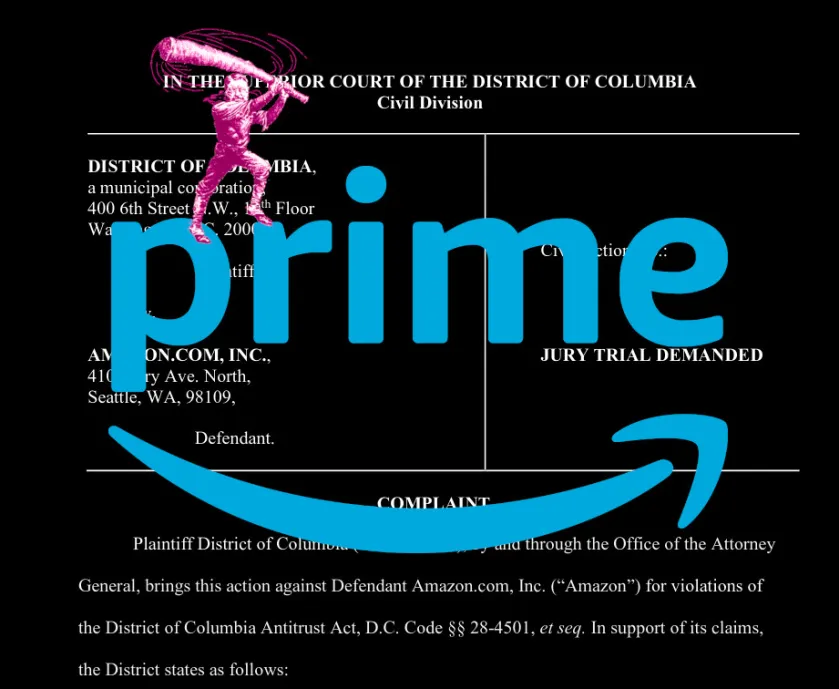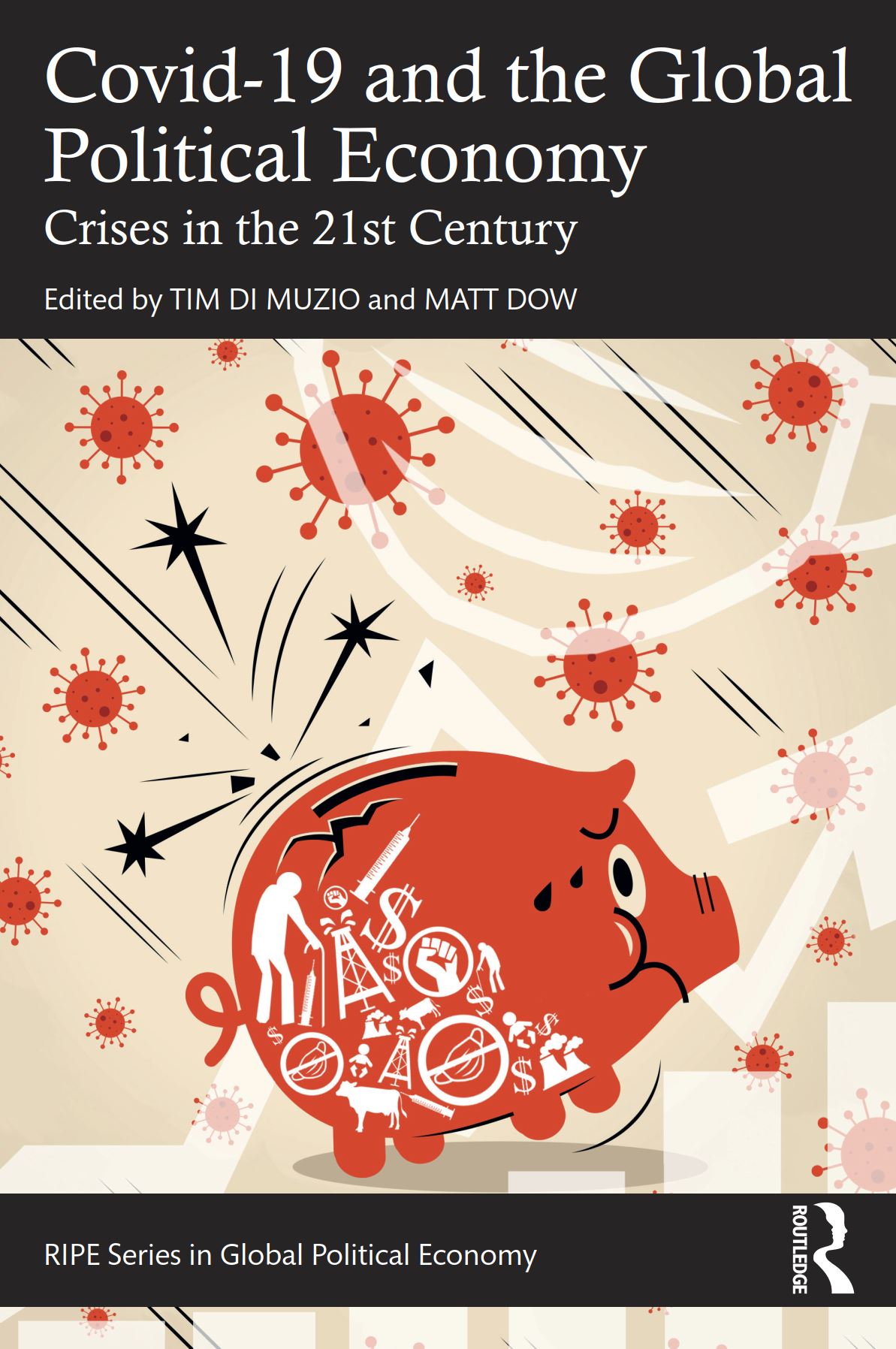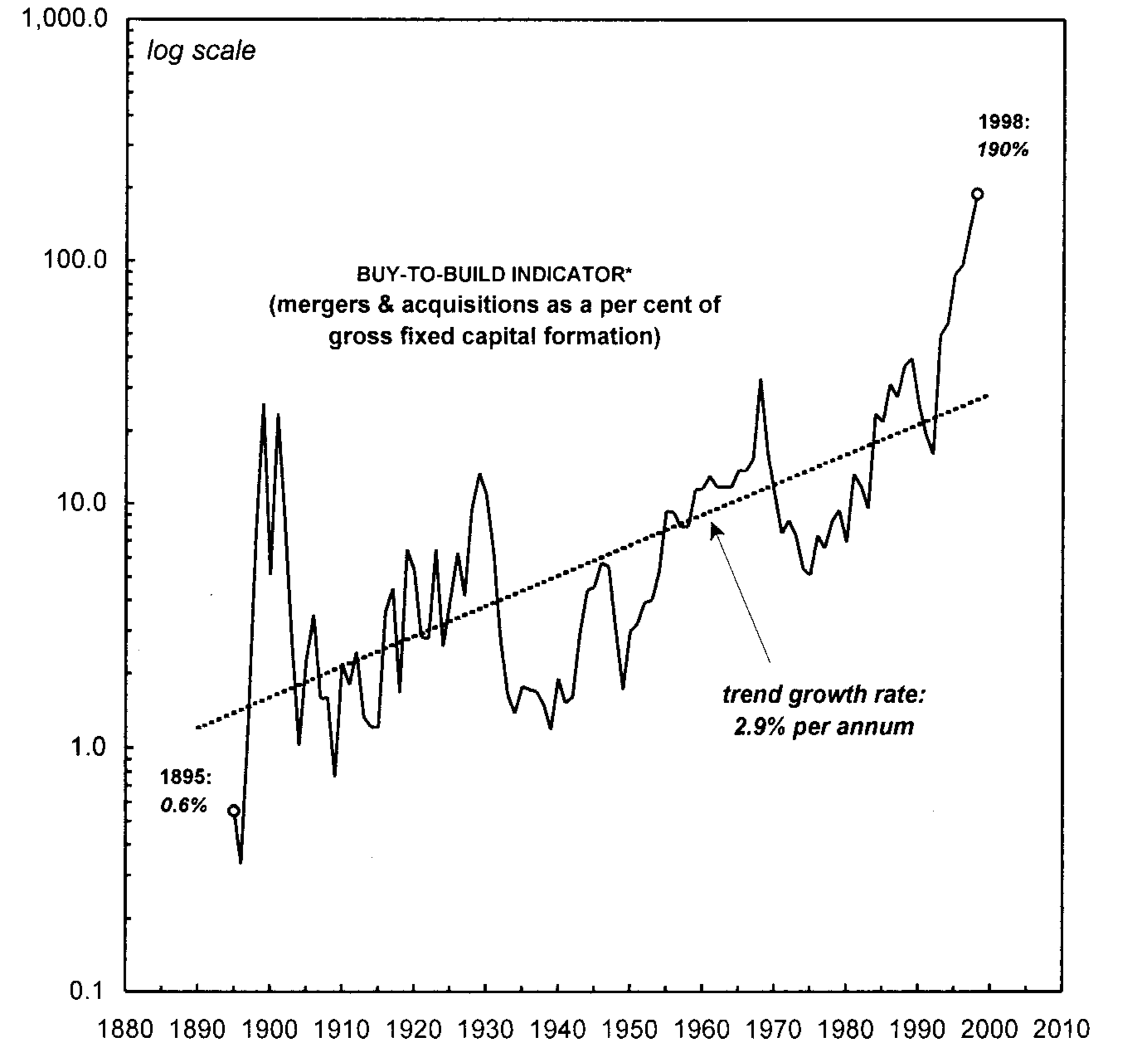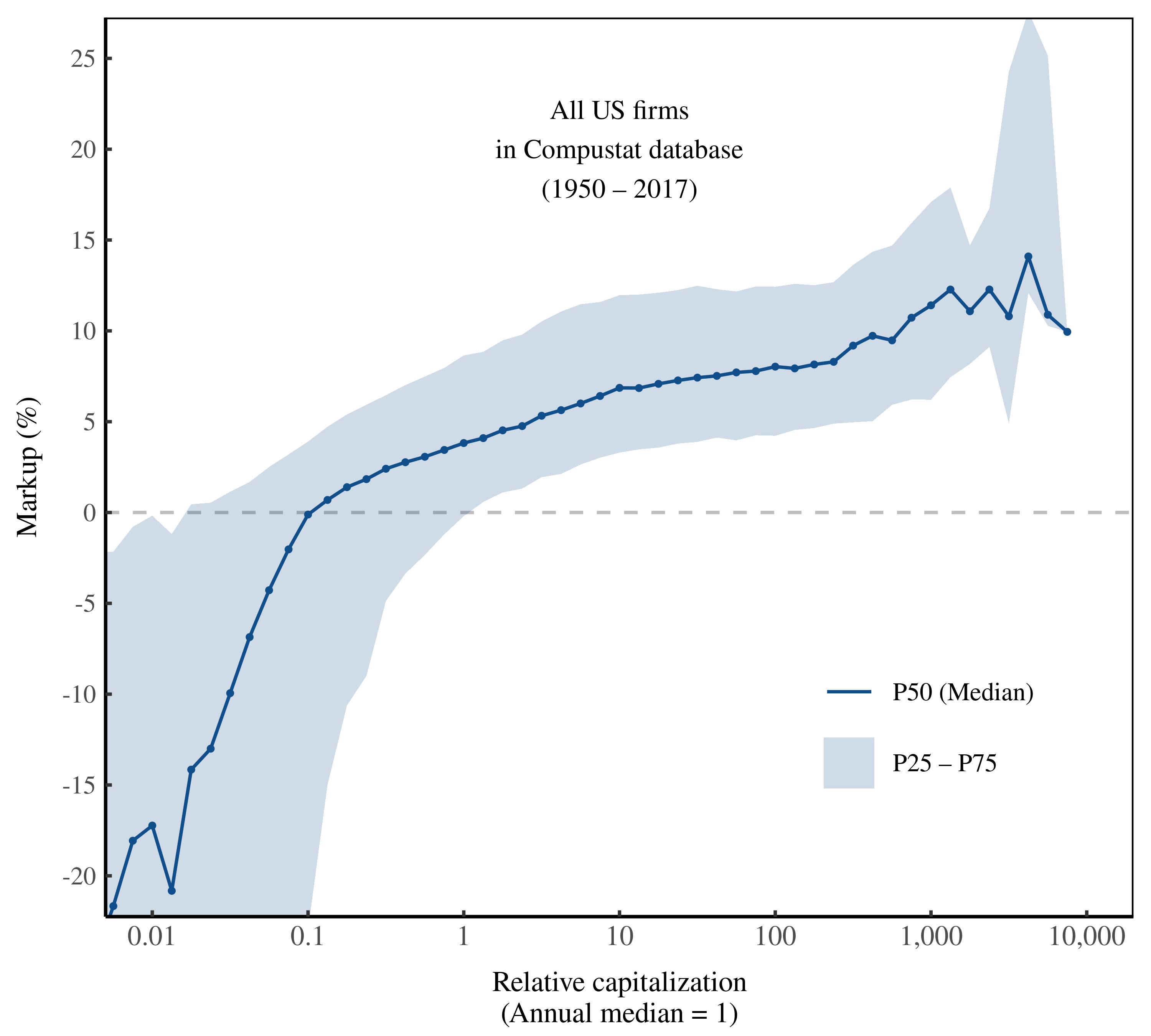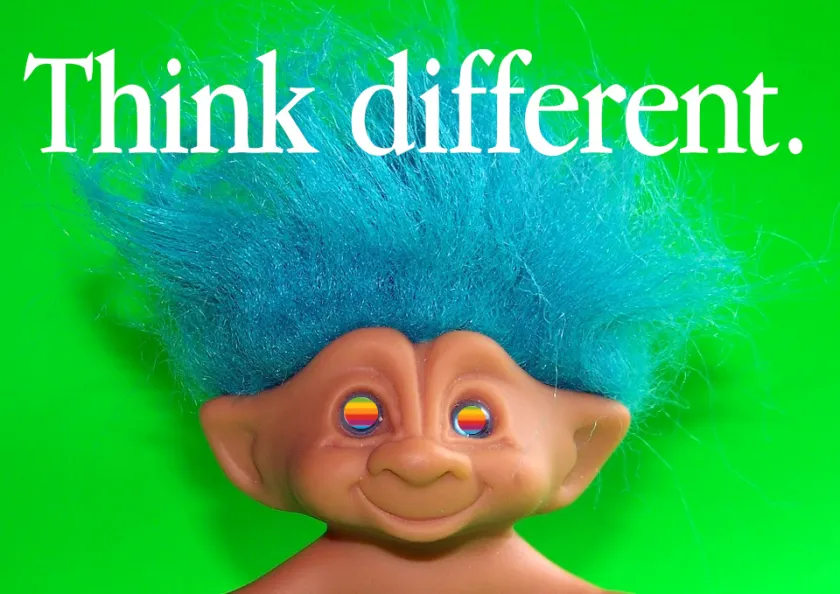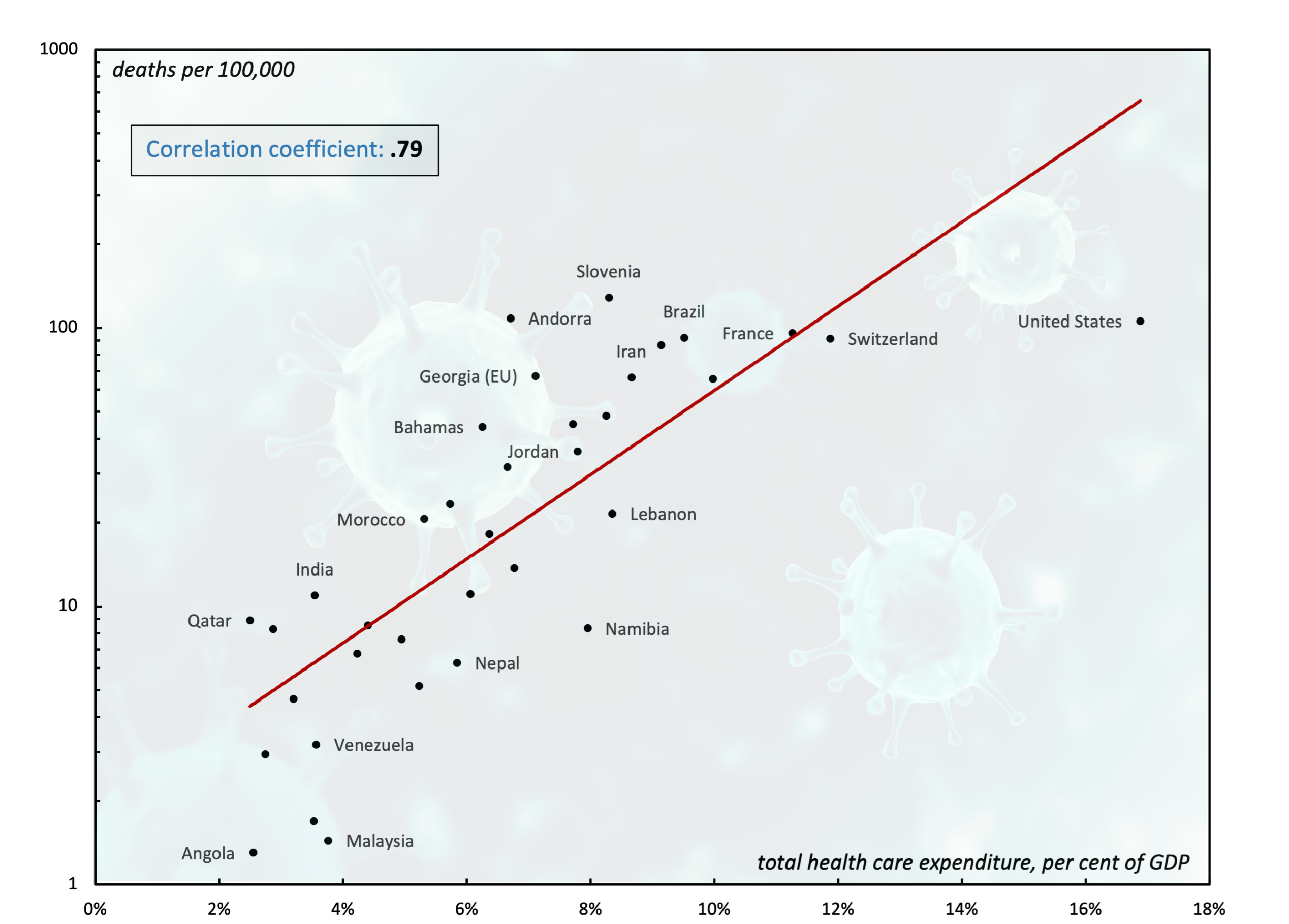Chris Mouré Note: this is the manuscript version of an article now featured in The Mint Magazine. Few will argue with the claim that shortages are socially harmful. Shortages, by definition, imply a lack of something – not enough stuff to go around. A shortage of food implies hunger; a shortage of electricity implies darkness. […]
Continue ReadingEssentialism and Traditionalism in Academic Research
Originally published at Economics from the Top Down Ryan Kyger1 and Blair Fix Philosophy of science is about as useful to scientists as ornithology is to birds. — attributed to Richard Feynman2 Most scientists don’t worry much about philosophy; they just get on with doing ‘science’. They run experiments, analyze data, and report results. And […]
Continue ReadingThe antitrust case against Prime
Originally published at pluralistic.net Cory Doctorow The starting gun on Big Tech trustbusting was fired in 2017, when Lina Khan, then a law student (now an FTC trustbuster!) published “Amazon’s Antitrust Paradox,” a law-review article showing how Amazon formed a monopoly without legal trouble. https://www.yalelawjournal.org/note/amazons-antitrust-paradox The key was a Reagan-era shift in antitrust policy, based […]
Continue ReadingThe Half Life of a Spotify Hit
Originally published at Economics from the Top Down Blair Fix The music business is a cruel and shallow money trench, a long plastic hallway where thieves and pimps run free, and good men die like dogs. — Hunter S. Thompson meme1 Browse the internet long enough and you’ll eventually run across Hunter S. Thompson’s meme […]
Continue ReadingThe habits of Netflix’s users
Originally published at notes on cinema James McMahon Like other streaming services, Netflix does not make its user data public. To date, there are two exceptions to this privacy. Netflix released a large dataset of anonymized user activity when it offered a one million dollar prize for the best AI model that could predict user […]
Continue ReadingDi Muzio & Dow, ‘Covid-19 and the Global Political Economy. Crises in the 21st Century’
Abstract Covid-19 and the Global Political Economy investigates and explores how far and in what ways the Covid-19 pandemic is challenging, restructuring, and perhaps remaking aspects of the global political economy. Since the 1970s, neoliberal capitalism has been the guiding principle of global development: fiscal discipline, privatisations, deregulation, the liberalisation of trade and investment regimes, […]
Continue ReadingMouré, ‘No Shortage of Profit: Technological Change, Chip ‘Shortages’, and Capital Accumulation in the Semiconductor Business’
Abstract Rapid technological change is often touted as a fundamental reality of capitalist societies. It is also often presented as concrete evidence for the supposed progressive improvement of material well-being that characterises the capitalist system of social order. Since its emergence in the mid-20th century, semiconductor technology in many ways exemplifies this reality. Yet the […]
Continue ReadingA Brief History of the Buy-to-Build Indicator
Originally published at Economics from the Top Down Blair Fix Today I’m trying a different type of post — one that’s not a deep dive, but instead, a rapid-fire summary of an important topic. My inspiration comes from Cory Doctorow, a sci-fi author who runs an old-fashioned links blog that he syndicates across the internet. […]
Continue ReadingThe Aggregate Demand Problem in Capitalism Solved
Tim Di Muzio Any student of capitalism knows it is a distinct economic system prone to periodic crises. These crises come in many forms and are typically studied after the fact, as the work of Kindleberger and others have demonstrated. But one of the largest mysteries in political economy is the problem of aggregate demand. […]
Continue ReadingHow the Sacklers rigged the game
Originally published at pluralistic.net Cory Doctorow Two quotes to ponder as you read “Purdue’s Poison Pill,” Adam Levitin’s forthcoming Texas Law Review paper: “Some will rob you with a six-gun, And some with a fountain pen.” (W. Guthrie) “Behind every great fortune there is a great crime.” (H. Balzac) (paraphrase) Some background. Purdue was/is the […]
Continue ReadingKolasi, ‘Pensions and Power: The Political and Market Dynamics of Public Pension Plans’
Pensions and Power The Political and Market Dynamics of Public Pension Plans ERALD KOLASI June 2022 Abstract This paper uses the theory of ‘capital as power’ to analyze the struggle over public pensions in the United States. While mainstream commentators claim that public pensions must be ‘reformed’ because they are ‘under funded’, I argue that […]
Continue ReadingThe Ritual of Capitalization
Originally published at Economics from the Top Down Blair Fix There’s something mysterious about finance. The symbols are arcane. The math is complex. The practitioners are impressively educated. And the stakes are high. All of this gives finance the veneer of higher truth — as if quants are uncovering a reality not accessible to the […]
Continue ReadingPatent troll IP is more powerful than Apple’s
Originally published at pluralistic.net Cory Doctorow I was 12 years into my Locus Magazine column when I published the piece I’m most proud of, “IP,” from September 2020. It came after an epiphany, one that has profoundly shaped the way I talk and think about the issues I campaign on. https://locusmag.com/2020/09/cory-doctorow-ip/ That revelation was about […]
Continue ReadingFree Speech For Me, Not You
Originally published at Economics from the Top Down Blair Fix They say that Americans love two things: freedom … and guns. The trouble with guns is obvious. The trouble with freedom is more subtle, and boils down to doublespeak. When a good old boy defends his ‘freedom’, there’s a good chance he has a hidden […]
Continue ReadingWhen Hollywood defines the limits of good cinema
Originally published at notes on cinema James McMahon On the question of who judges the quality of a film, it is easy to start with a notion that the ultimate judge of a film’s quality is the individual moviegoer. As individual moviegoers, this is often what we think we are doing: we have the autonomy […]
Continue ReadingCapital as Power Essay Prize Winners, 2022
Blair Fix The Review of Capital as Power is pleased to announce the winners of the 2022 Capital as Power Essay Prize: First Prize: ‘Costly Efficiencies: Healthcare Spending, COVID-19, and the Public/Private Healthcare Debate’, by Chris Mouré. Second Prize: ‘Hype: The Capitalist Degree of Induced Participation’, by Yuri Di Liberto. Chris Mouré’s ‘Costly Efficiencies’ In […]
Continue ReadingMouré, ‘Costly Efficiencies: Healthcare Spending, COVID-19, and the Public/Private Healthcare Debate’
Costly Efficiencies Healthcare Spending, COVID-19, and the Public/Private Healthcare Debate CHRIS MOURÉ May 2022 Abstract Proponents of private healthcare often claim that the private sector is more ‘efficient’ at delivering healthcare services. This paper tests the privatization thesis in the context of the COVID-19 pandemic. Using a large sample of countries, I investigate how healthcare […]
Continue ReadingDuke is academia’s meanest trademark bully
Originally published at pluralistic.net Cory Doctorow Two of the most astute IP scholars I know also happen to be two of the best legal writers I know, and also happen to work at one of the worst IP abusers in the country: Jennifer Jenkins and James Boyle, of Duke University, the nation’s leading academic trademark […]
Continue ReadingMcMahon, ‘Why Scorsese is Right About Corporate Power’
Abstract In the March 2021 issue of Harper’s, Scorsese wrote an essay to pay tribute to Federico Fellini, the Italian director who directed such great films as La Strada, 8 1/2, La Dolce Vita, Nights of Cabiria and Satyricon. Scorsese writing on Fellini is definitely newsworthy for cinephiles who want to know about Fellini’s beginnings […]
Continue ReadingDi Liberto, ‘Hype: The Capitalist Degree of Induced Participation’
Hype The Capitalist Degree of Induced Participation YURI DI LIBERTO April 2022 Abstract Power is usually considered as either a ‘positive’ or ‘negative’ construct, as in the power to force action versus the power to forbid it. This paper explores a hybridized approach to power based on the idea of ‘induced participation’. Building on Bichler […]
Continue Reading


